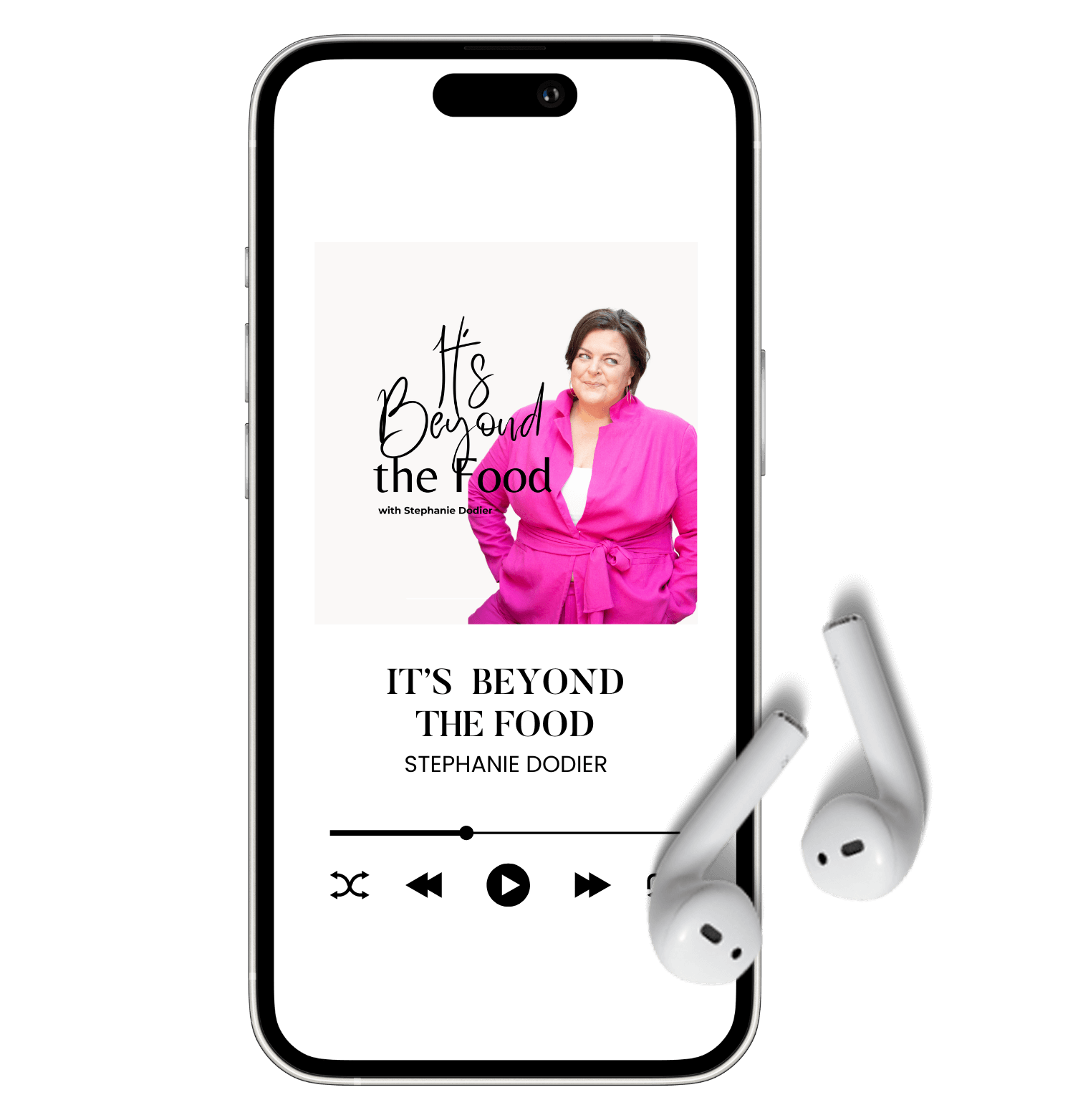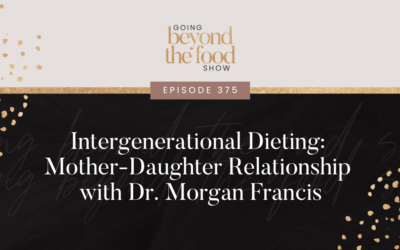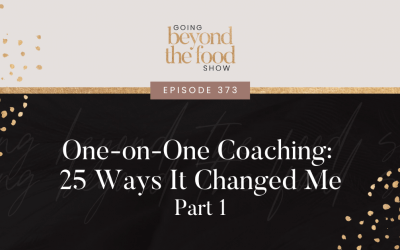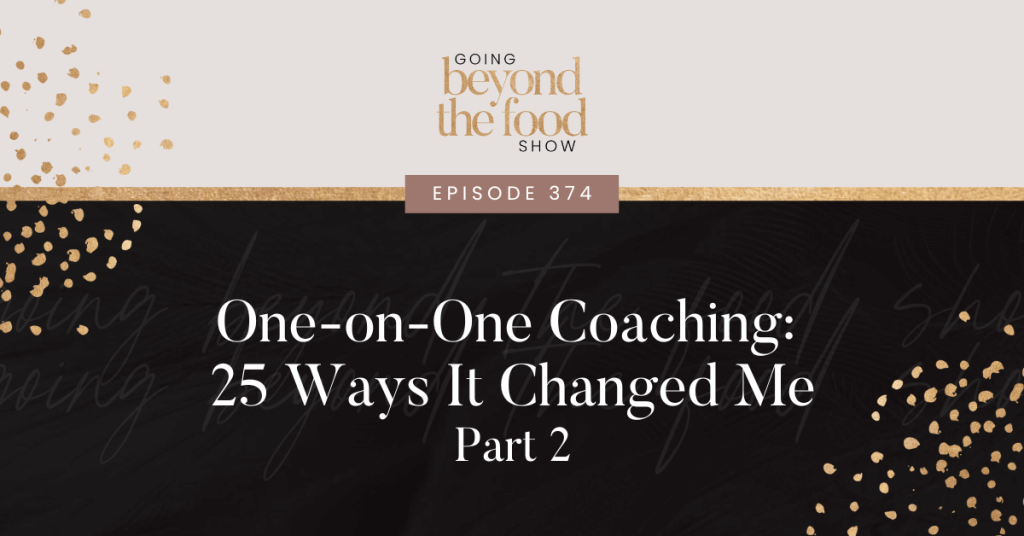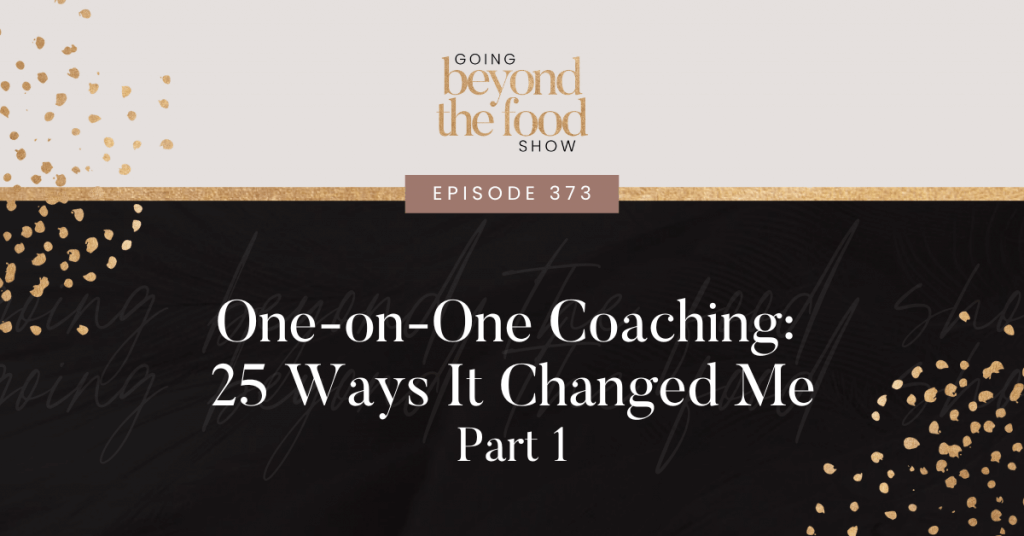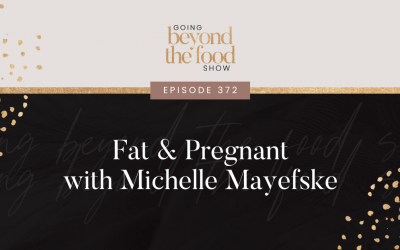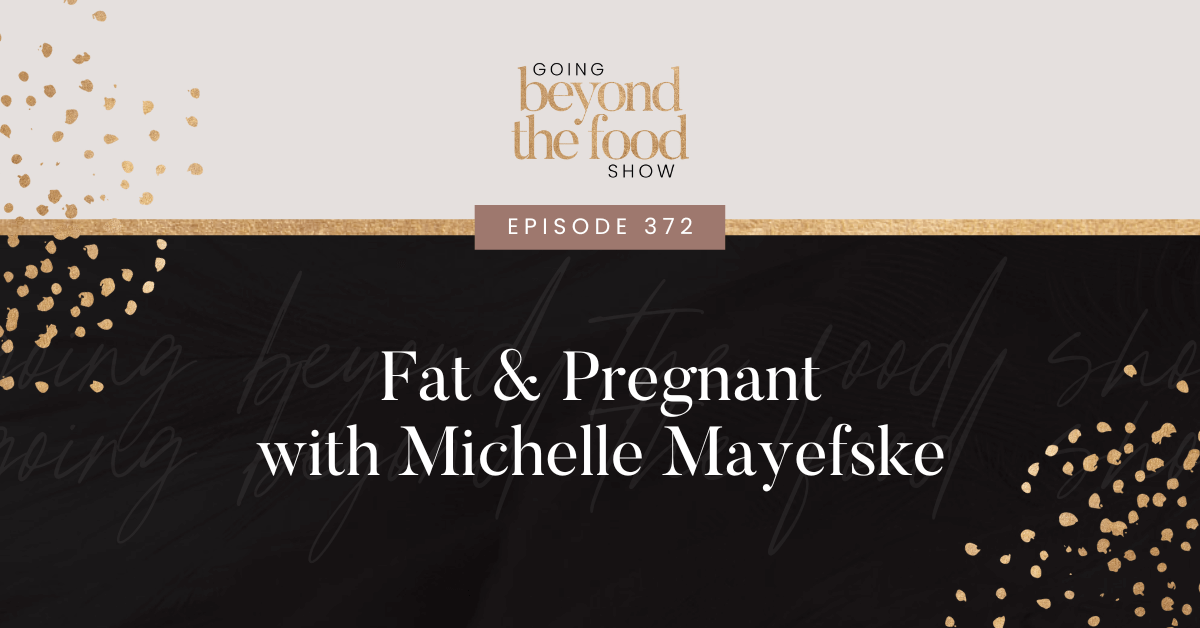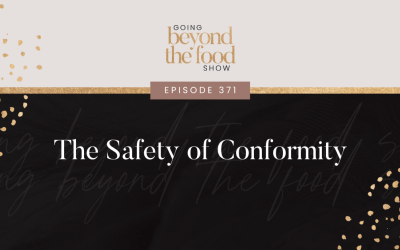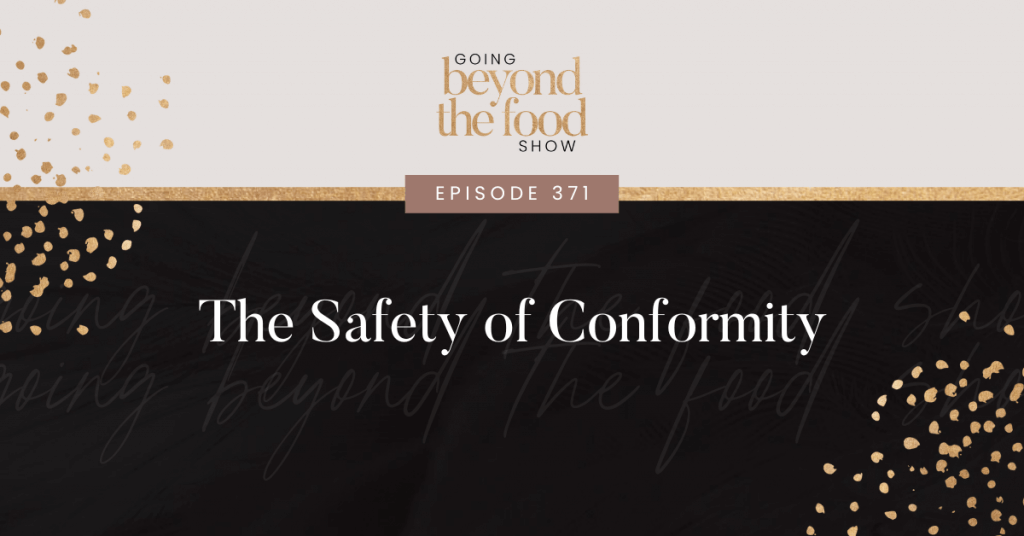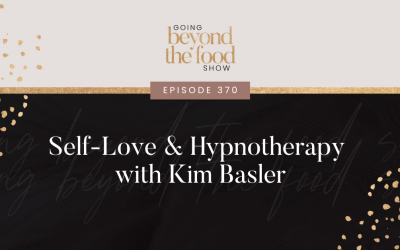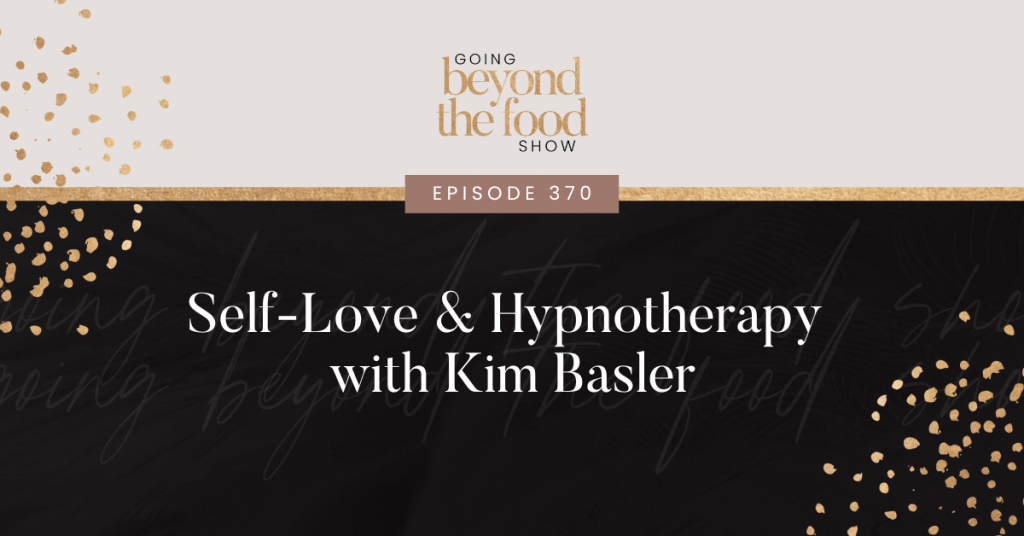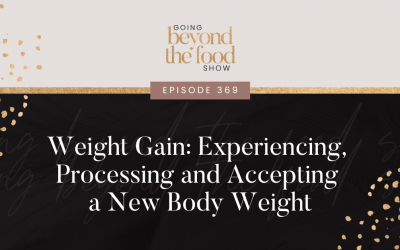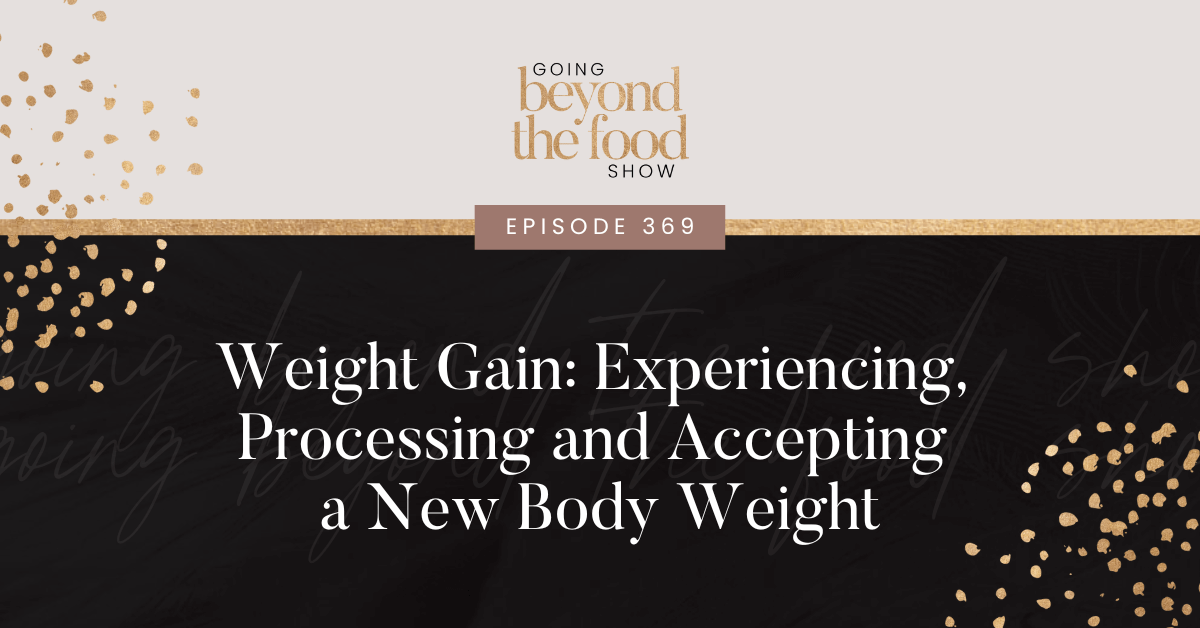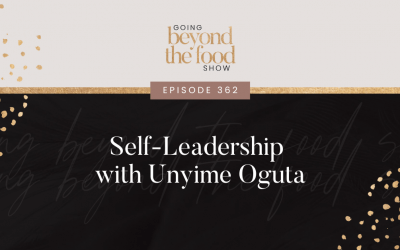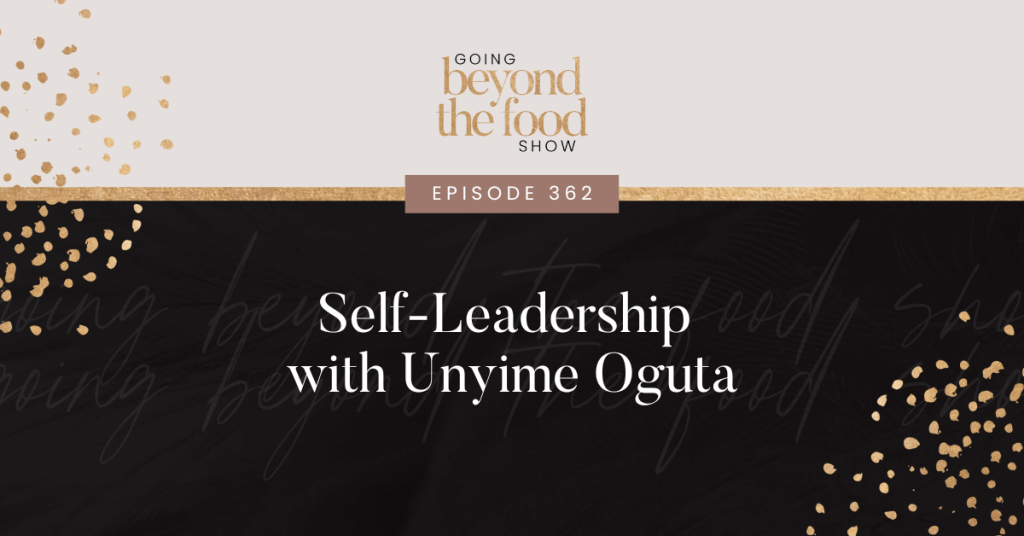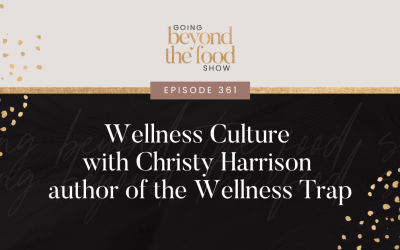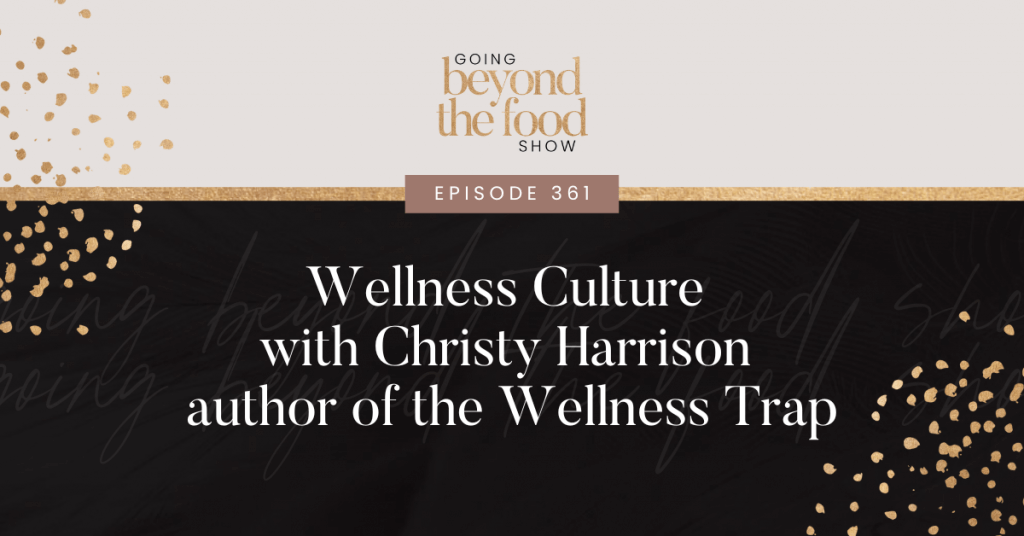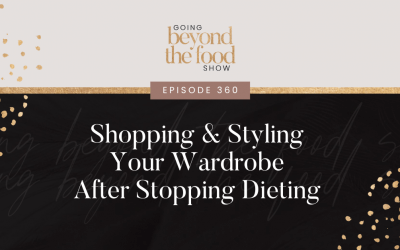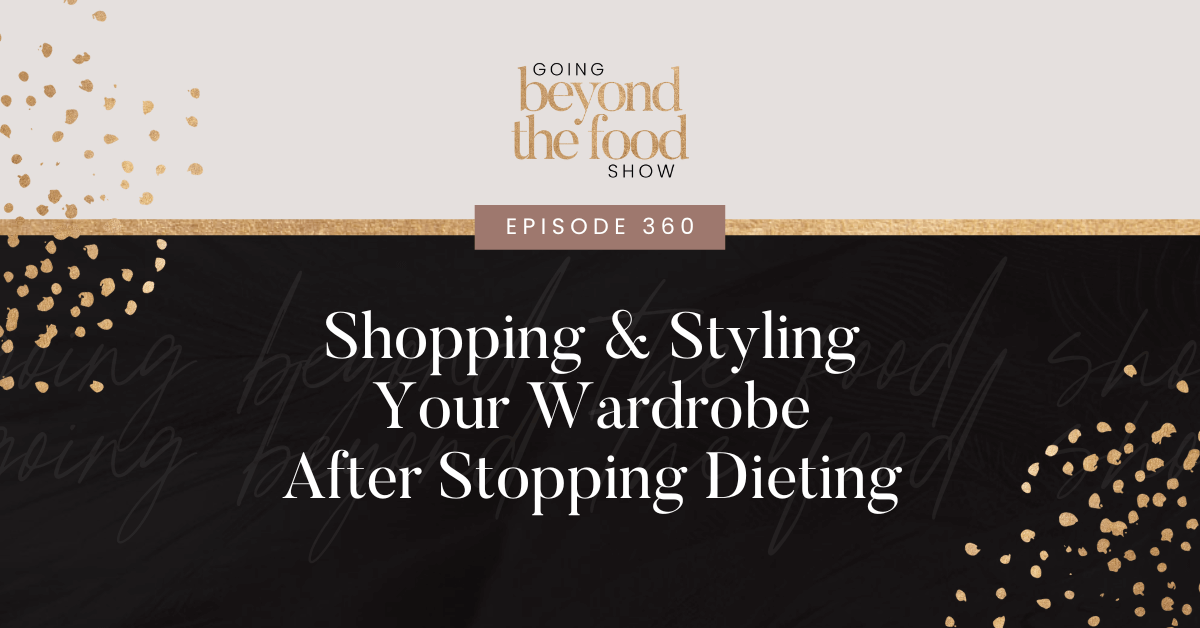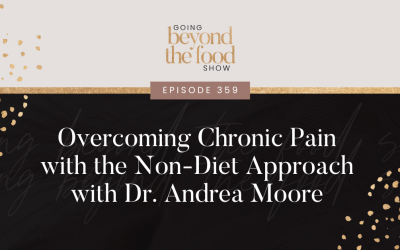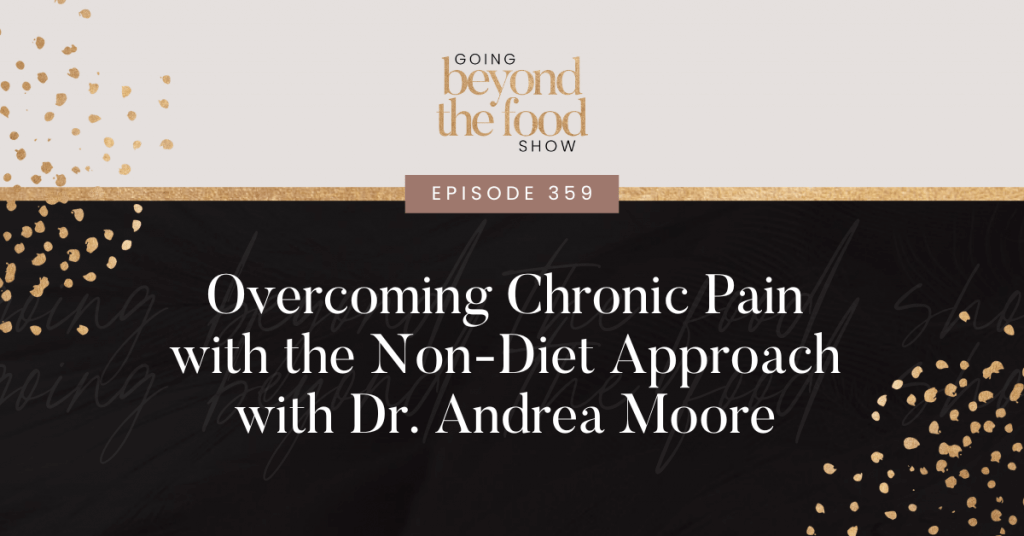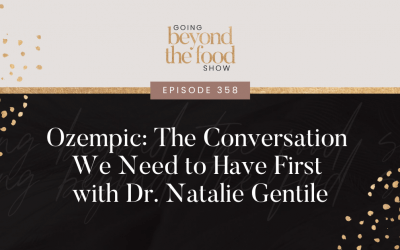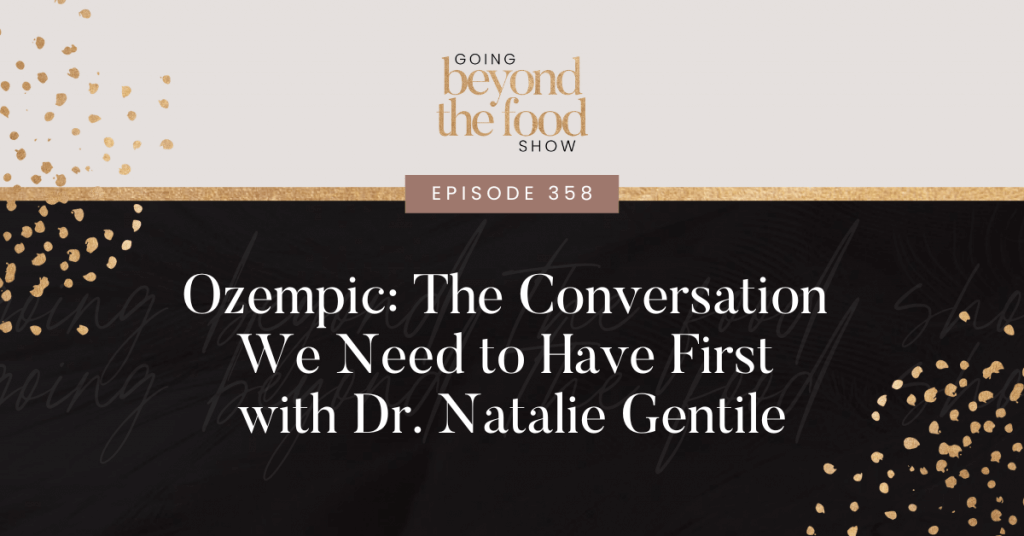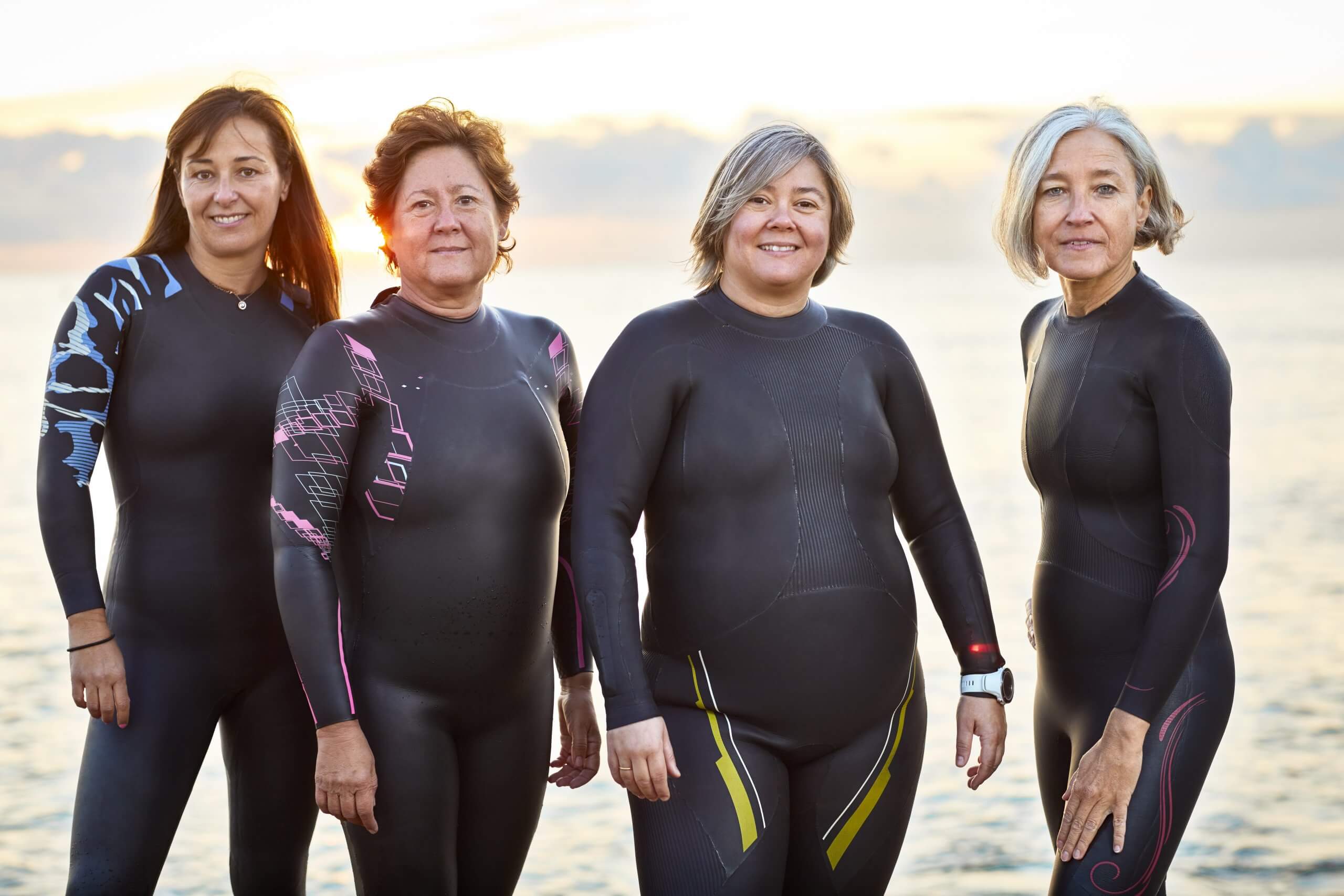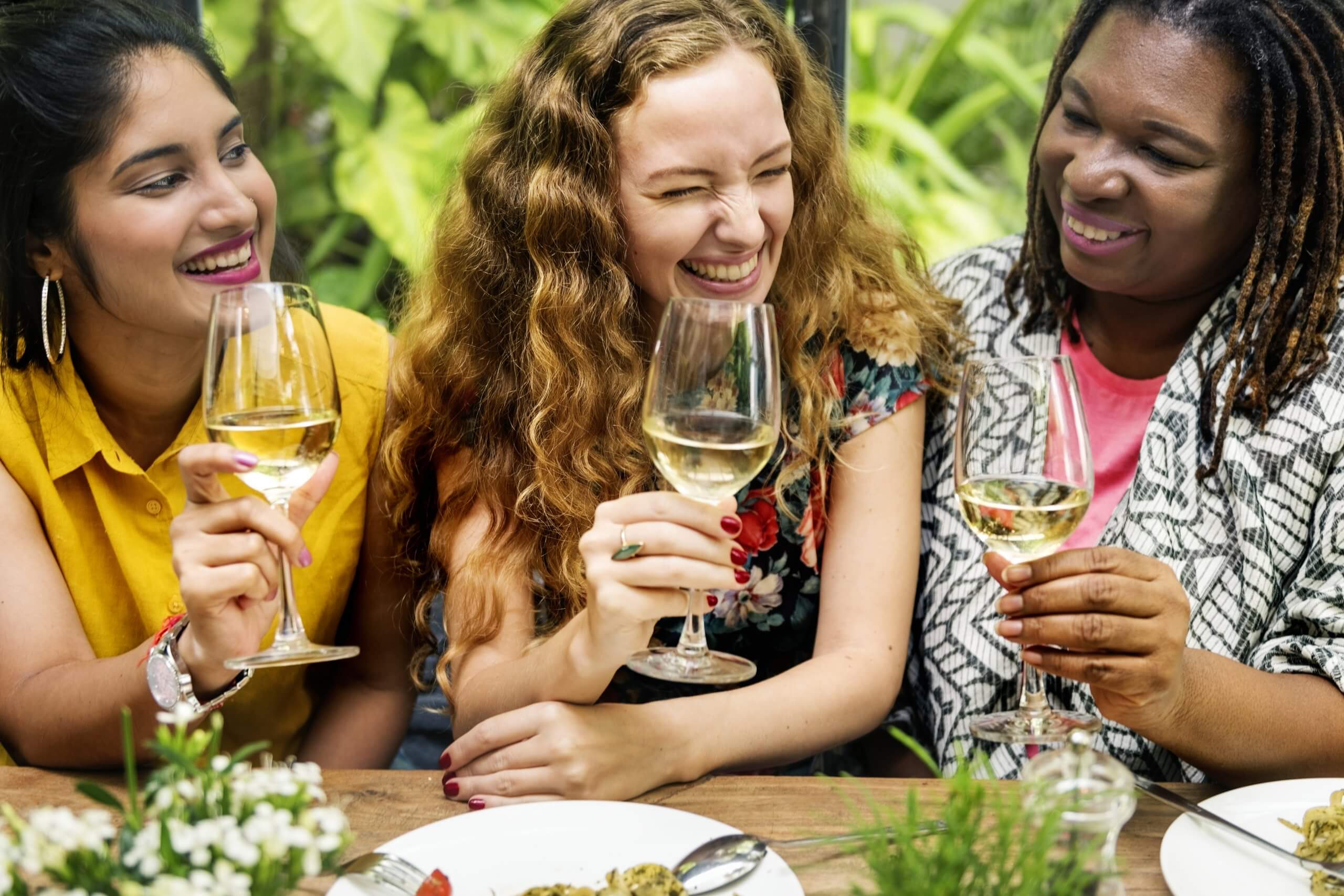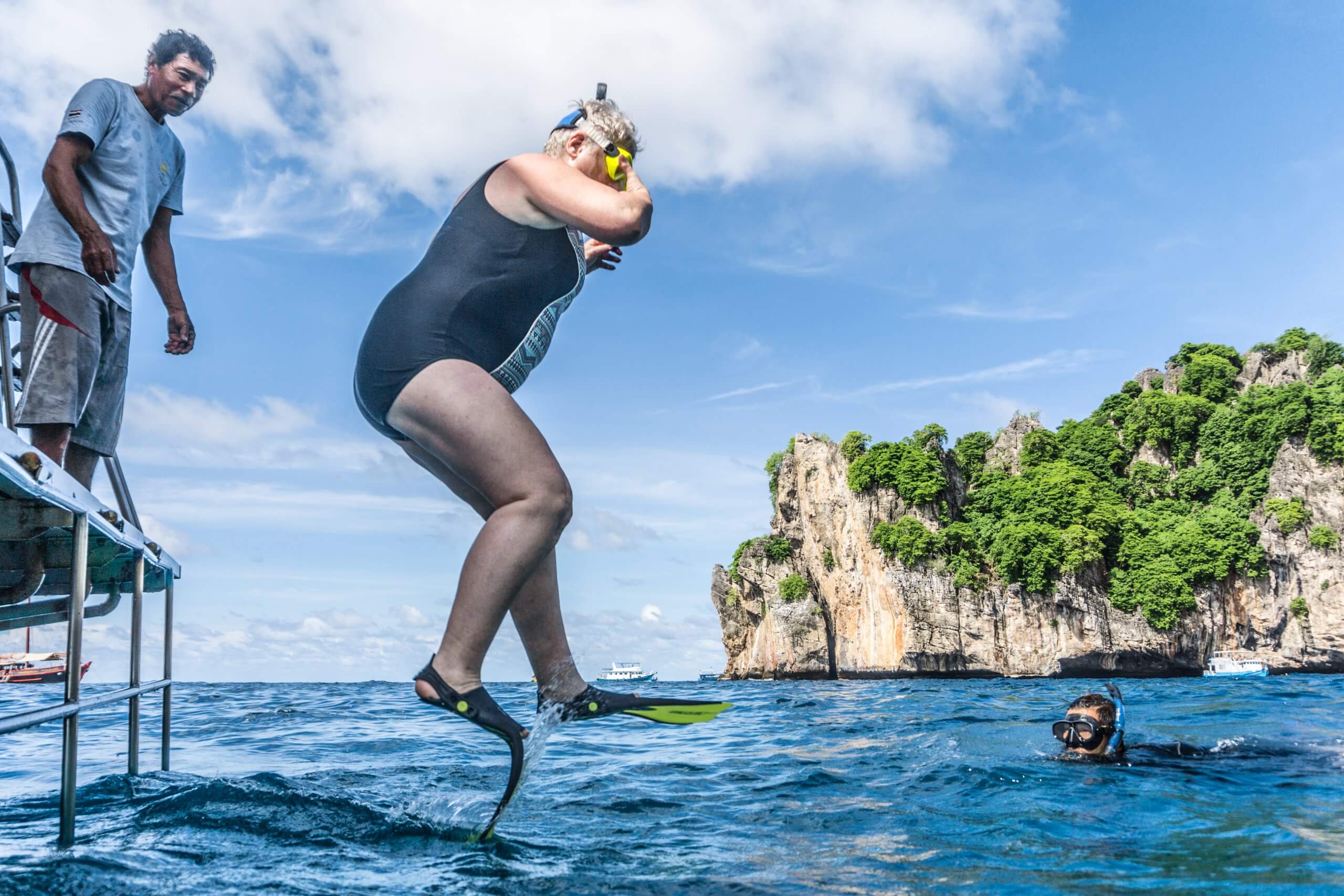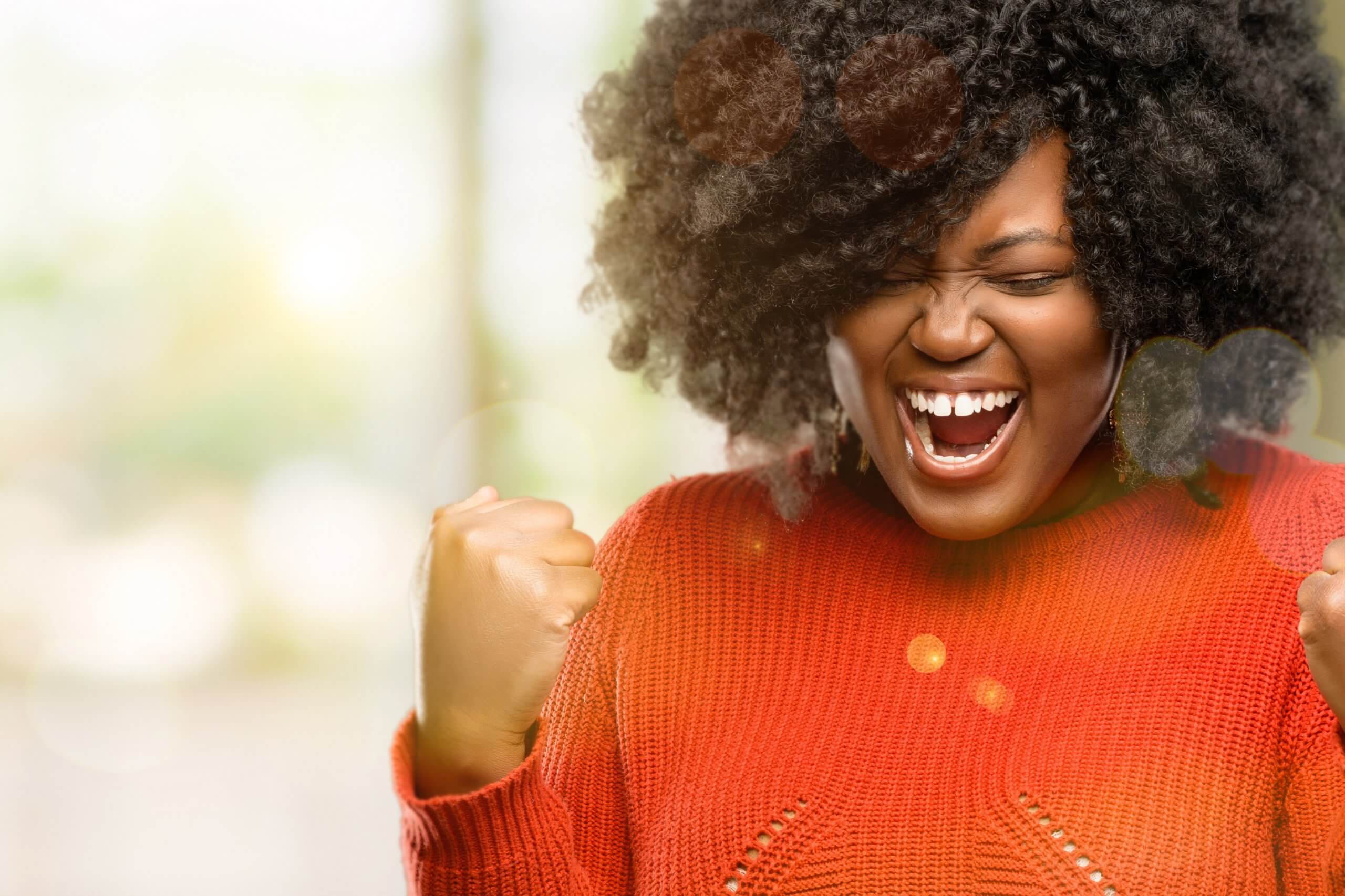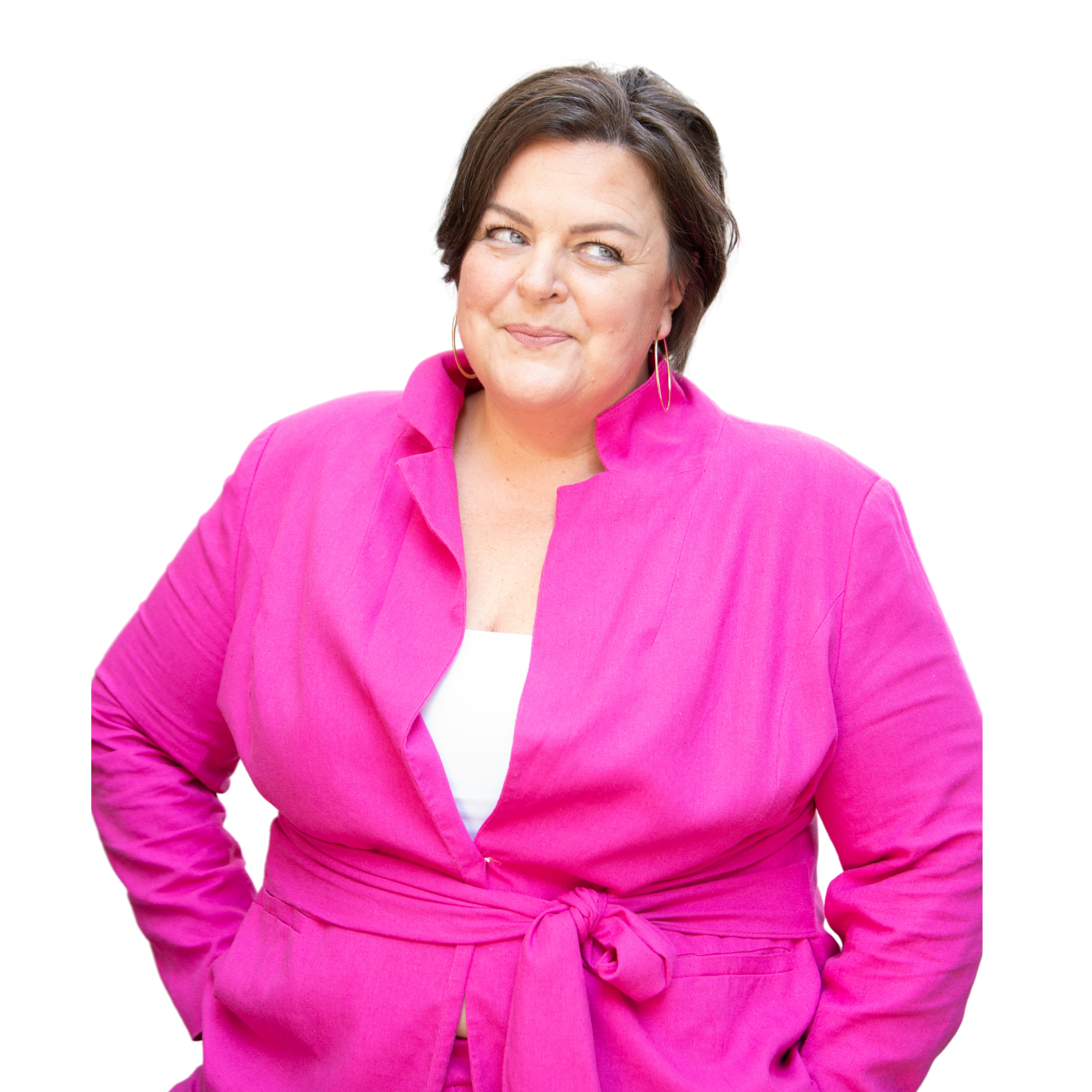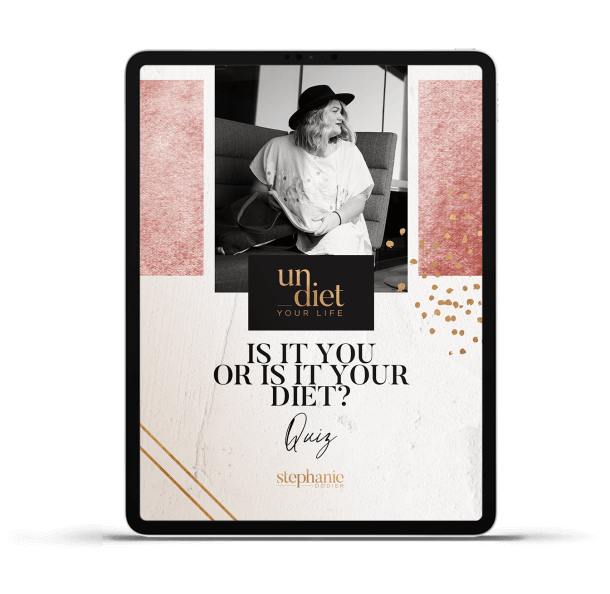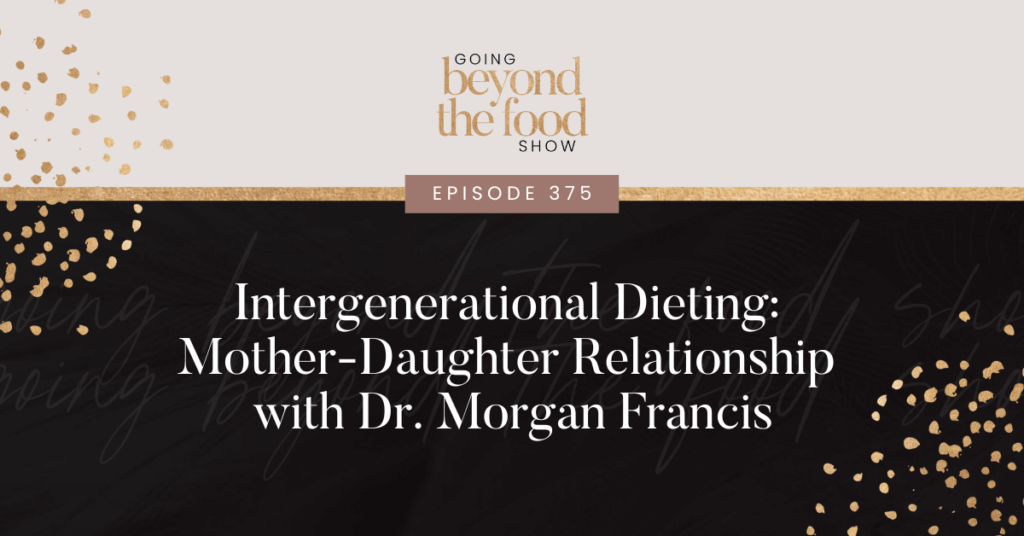
Intergenerational Dieting: Mother-Daughter Relationship
Studies have found that women who began dieting at early ages were more likely to have daughters who would engage in binging or have problems with eating. These mothers were also more likely than other women to agree, when asked, that their daughters should lose weight.
That’s my story. I learned dieting with my many ants and mom. So what happen when you stop dieting and are on the journey to accepting your body and she’s not?
That is what we explore today, Dr. Morgan Francis. She’s a former dieter and now a mom of 3 who specializes in the treatment of body image, sexual health, relationships, self-empowerment, and eating disorders.
What you’ll learn listening to this episode on Intergenerational Dieting:
- What is intergenerational dieting and did it affect you
- How to best approach your mother when you decide to stop dieting and she doesn’t
- The Role of Mother-Daughter Relationships in Determining Body Image
- How to help your children form great self-esteem and body image
Mentioned in the show:
Non-Diet Coaching Certification
Connect with our guest:
Dr. Morgan Francis’ 10 Ways to Build Body Confidence
Transcript
Intergenerational Dieting with Dr. Morgan Francis
===
This is episode 375 of the Beyond the Food Show and today we’re going to talk about entergenerational dieting. And the mother daughter relationship around dieting. You don’t want to miss this. Stay tuned.
Hey you, welcome back to the podcast. I don’t know if you can feel it in my voice, but I’m very excited about the next hour we’re going to spend together on this podcast for two reasons. Number one, because we’re going to talk about something that’s near and dear to my heart, the mother daughter relationship and dieting. But first, I am here to announce something. That is pretty damn cool. We are launching Health Habit School inside of a NIA2LIFE program and I have been sitting on that project for at least two years and it’s happening now. I want to invite you if you want to create a new health habit and
that’s the first thing to know about this project, Health Habit School. You don’t have to create any health habit if you’re not ready, if it’s not your thing, and you don’t have any interest in that. And I don’t want the creation of Health Habit School to be perceived that it’s because you have to.
Health promoting behavior are optional and they are Something that you choose to do or not, and there is no shame, guilt, if you don’t take any action towards your health right now. For whatever reason, it’s irrelevant. That’s the first thing I want you to know about this project. Now the second thing is that if you are ready to learn how to create health habits that have nothing to do with the size of your pants, And that do not involve external motivation like self criticism, judgment, willpower.
This is the place where you want to be. Unfortunately, diet culture for any one of us who has. been involved in diet culture, dieting, shrinking your body, and even wellness culture. We have been taught that in order for us to create the motivation to care for ourselves, we have to center it around controlling, managing, shrinking our body, that we are not enough as who we are right now, and we need to do it to become good enough.
Like this, the whole motivation around health habit is actually what causes us to go on the on and off cycle, not just with dieting. With movement, with self care, with mental health and emotional health habits we have that get us on that on and off cycle that makes us prime target for wellness culture and diet culture programs and gimmicks and product because the way we have learned to create the habit is the problem.
So we’re going to unlearn, unpack all of this inside of health habits school. And it’s going to be mind breaking to many of you. And I know it was for me when I learned, when I had to unlearn the way I was creating habits for almost 30 years and relearn how to create habits for the rest of my life. And that’s what I want to teach you and coach you on how to embody that.
We are launchingthe Health Habits School registration on October the 1st. And our first class will be on October 15th. And we’ll go on of having a class every week for the month of October and beginning of November. And we will have coaching calls twice a month to help you as you embrace this new way of teaching.
Thinking and following through on habits to support you and creating these habits. For the rest of your life. So if you want in, go to stephaniedozier. com forward slash Undie at Your Life. If you are listening to this right now, it’s a wait list for Undie at Your Life. Join the wait list. You’ll be the first to know when we open, the first chance to register for Undie at Your Life.
And we start October 15th. And if you’re listening to this at, I don’t know, 2024, like. Past October 2023, know that this module of Health Habits will be something that is part of On Diet Your Life at any time you join going forward. So it’s accessible to you no matter when you’re listening to this podcast.
Okay, now today’s topic on intergenerational dieting and mother daughter’s relationship. I have brought on a guest today to help me explore this topic for two reasons. Number one, I have a mom, but I don’t have children. So I wanted someone with the lived experience of how she raise and interact with her daughter, not to create or repeat the pattern of diet, culture, and also an expert in relationships.
So I have on the podcast for you today, Dr. Francis. She’s a therapist and she specialize. It’s on body image, relationship to food, relationship, mom and daughter, anything that has to do with dieting and the unfortunate side effect of it. So we’re going to unpack these concepts for you first. We’re going to explain what intergenerational dieting is and how to approach your relationship with your mom, who perhaps is still dieting, and then how to raise.
A daughter that is not going to be the target of diet culture. How to build up the self esteem of your children so they won’t say no to diet culture right off the bat. Okay, we’re going to roll in this interview, enjoy and I can’t wait to hear comments from you. I love you, my sister. I’ll see you on the next podcast.
Stephanie: welcome to the show, Dr. Morgan.
Dr. Morgan: Thank you so much for having me.
Stephanie: It’s extraordinary the world of internet, how we move our relationship from finding each other on Instagram to conversing in DM and now being face to face on zoom. I’m so excited for this.
Dr. Morgan: Yeah, me too. I’m a big fan of yours.
Stephanie: Same thing here. And I want to pull on to your skill of counseling because that’s what you do. And I want to talk about mother daughter relationship, contextualize around the journey of liberating ourselves from diet culture. So I’m going to get us started with this concept of intergenerational dieting. How would you define that? What does that mean for you?
Dr. Morgan: What that means for me and how I explore that with my clients is getting an understanding of how dieting not only has shown up in their life, but also has shown up in their mother’s lives, their grandmother’s lives, their aunt’s lives, and maybe also even the men in their life too, because it is something that we see passed down from generation to generation.
Dr. Morgan: And so there could be messaging, along, be thin at all costs. skinny’s better than anything else, to remain youthful, right? And the aging process is another area as well that’s been passed down from generation to generation. And so these messages, right? Can show up in many ways.
Dr. Morgan: It can be like the mother saying something directly to her daughter, or it can be the mother saying something about a friend of the daughter’s comparing the daughter to a friend or comparing the daughter to another child in the family. or the mother making comments about her own body shape and size that maybe she.
Dr. Morgan: Experience self loathing or self hatred about and so because the mom hated her body, she wants to make sure her daughter doesn’t hate hers. And so one of the biggest questions I get asked from moms is how do I make sure my daughter has body confidence? And what I, ask back to the mom is how are you working on yours?
Dr. Morgan: What are you doing to ensure that you have body confidence because you can’t expect her to love her body or appreciate her body if you are grimacing at your own reflection in the mirror, or if you’re continuing to have diet conversation, or if you’re cutting out food groups, or if your body shaming yourself.
Dr. Morgan: So it really starts with the people around us. And that’s why we see so many women when we asked, when was your first diet? It’s typically when they were an adolescent. Okay. Yeah. They saw their mom diet. They saw their mom go to Weight Watchers, right? And so that intergenerational trauma of diet culture is something that to have many conversations about.
Stephanie: Yeah. That’s my story. Like I was enrolled, that would have been like in 1985 to 1990s in a family diet at 12 years old. Like all my aunts and my moms and we were like 15 women dieting together.
Dr. Morgan: Yes. Yes. Yes. Exactly. Yes. I used to get paid to lose weight. So my mom would bribe me. So if I lost weight, it was, Oh, you can get this amount of money or I’ll buy you this dress or you can have these shoes. So there was like bribery involved. And again, I really, I don’t mean to speak ill towards my mom or any of the women that have done this to their children. I think again, my mom was coming from a good intentional place, right? She was trying to protect me from, I have quotations going on here. Like trying to protect me. From the, her own body shame, right? But you can see the damage that it did. Right.
Stephanie: And so let’s talk about that because that’s one point as a counselor. I want you to help people understand because when I coach women, they’re doing their own work, right? They’re doing their own body acceptance journey. And then they realize through my various process that they’ve learned it intergenerationally. Like from their mom and their aunts, and now they have this difficult relationship with their mom. Like she caused that to me, like she’s the source of that. Like how do we start processing intergenerational dieting when we’ve learned it without making it the blame game and feeling terrible about who we learned it from?
Dr. Morgan: Yeah, that’s such a great question. So I think it takes a tremendous amount of healing. Right and minus amount of, like, safe space to provide the person that we’re working with to have the ability to, cry to feel the sadness to feel the pain, the anger, the hurt and to validate that right to validate that inner child. That was wounded through these conversations and the messages that they received. And one of the things that I honestly just had this conversation about is, my ability to be okay, is not going to be dependent upon my mom, understanding how hurtful those messages were. Like I would never go back to a bully and expect them to say, sorry, for me to be okay.
Dr. Morgan: We don’t look to the bully to apologize. I’m going to heal myself. I’m going to be okay, regardless of what you do, because not every parent is going to say, you’re right, honey. I am so sorry for the way that I hurt you. I feel awful. I really, I did some really bad things and I’m really sorry. We, if you get that good for you, but most people don’t, or your parent could be dead.
Dr. Morgan: And then what do you do? Right. Or the grandma could be dead. It doesn’t even have to be just your mom. It could be an aunt. Right. So your healing is depending upon you and your work. And so it’s about being able to nurture and take care of that little girl inside of you that has been wounded by stopping those intergenerational diaculture patterns.
Dr. Morgan: Right. So I’m no longer going to be hard on myself. I’m not going to body shame myself. I’m going to give myself permission to eat what my body wants. I’m going to give myself permission to wear what I want to wear. I’m going to, I’m going to throw out the scale. I’m not going to track my calories. I’m going to honor my hunger and my fullness, and I’m going to move my body in a way that feels good, right? So really, it’s about permission, and it’s about freedom, and honoring and loving ourselves, no matter what our moms or aunts or grandmothers say to us in response to our pain.
Stephanie: So it’s that first looking to comfort ourselves, to meet ourselves with compassion.
Stephanie: Mm hmm. Now let’s go to the next step. My mom, my aunt, my grandmother is still present in my life. Mm hmm. Right, which is usually where it leads to is. They’re still present in my life and I still want to interact. I want to have a social life with my mom. How do I do that when I just learned that she’s part of the reason why I am where I am today?
Stephanie: How do I engage with her now? And she may not be on the same journey as me. She’s still perhaps diving and hating her body.
Dr. Morgan: Yes. That’s a great question. Boundaries. it’s that B word it’s boundaries and we get to decide what those boundaries look like. It may mean that I can’t have conversations with you, mom, about dieting and food, mom.
Dr. Morgan: I don’t want to know when you’re on your diet. I don’t want to know if you’ve lost weight, you’ve gained weight. And I don’t want you to talk about that to my children, mom, you cannot comment on my children’s weight. Right, like, it’s having those conversations for us, those boundaries for us, and also if you are a mother, having boundaries around your own children.
Stephanie: You know, that’s the next step, yeah, the next generation after.
Dr. Morgan: Next generation, right,
Stephanie: A lot of women feel really uncomfortable with setting boundaries.
Dr. Morgan: we’ve been conditioned to be pleasers, right? We were raised to be pleasers. So having boundaries means I say no, which is the opposite of people pleasing because people pleasers always say yes, right? So we, as women have been conditioned to be pleasers, not only in what we say, but how we look, how we dress, how we show up in a meeting, right? God forbid, I’m a bitch. I always need to be nice. Yes. I always need to be well liked, right? So that’s been a condition. So for us to have boundaries means I’m saying no. And really what I’m teaching, what I teach to my clients is we can be respectful and how we say no.
Stephanie: Ooh, tell me more about this. That’s, I think that’s the key that’s going to make women wanting to embark in setting boundaries.
Dr. Morgan: Yes. So I think there’s this idea that boundaries are mean and they’re selfish, right?
Dr. Morgan: and I, I can never say that, right? and no, that’s not what we’re looking for. We’re not looking to be disrespectful, right? We’re not looking to be mean. We’re looking to hold space because the boundaries for us. Now mom could still talk about her dieting. I can’t control that. But what I can control is how I respond to that.
Dr. Morgan: And that’s the boundary. So maybe I respond by removing myself. Maybe I go into another room. Maybe I go into the bathroom and take a couple deep breaths. Maybe I gently say, and respectfully say, I understand that you’re trying to go on a diet again, but it’s uncomfortable for me to talk about it. And so I prefer if we just change the subject, or maybe I just change the subject and that’s my boundary.
Dr. Morgan: Right. It doesn’t have to be mom. No, I’m not talking about this. It doesn’t have to be harsh. It can be gentle. It can be respectful. Right. And I think as women, we can start to kind of practice the boundaries. Right? It doesn’t have to be like, we take the low hanging fruit, right? If mom is like the top of the tree, we just go with the low hanging fruit. And maybe the boundaries start with someone we don’t know, right?
Stephanie: Well, that’s a great way, like, like titrating, like approaching gradually the intensity of the relationship and learning to set boundaries. Correct.
Dr. Morgan: So maybe it’s with the Starbucks barista and maybe she got your drink order wrong or she misspelled your name. And so you say, Oh, hi, actually I run at this hot, not iced, right? That’s about it. Like I’m speaking up for myself instead of being a comedy and oh, it’s okay. I’ll take it this way. Oh, why? Why would you take it something the way you don’t want it? Men wouldn’t. A man would go right up there and say, actually this is, I don’t want this. This isn’t right. Right. He would probably be harsh. Yeah. Yeah. Yeah. We don’t, we, and so we can be gentle and we can be kind and still have the boundaries because remember the boundaries are meant for us, they’re not meant for others, right? And so it’s giving ourselves self compassion and that’s an area and a muscle that we as women have not really learned. How to be compassionate to ourselves because the world is not compassionate to us.
Stephanie: It is not. It’s a muscle we have to build. Let’s talk about one of the things I find often is the power dynamic, right? Mother, daughter. So when we come to the world of boundary, there’s really like, can I really say that to my mom?
Stephanie: Can I like, my mom is in the position of authority over me, even if I’m 35 years old, like I’m still in that. That little girl, mom relationship. So there’s also like, how do we deal with that dynamic that we think about our relationship to our mom?
Dr. Morgan: I think it’s a couple of pieces of that one cultural, right?
Dr. Morgan: Ethnicity, right? So if we’re, we have to look at, some of the background. And if the ethnicity and the culture behind it, because I really, truly believe that there’s certain cultures that is very much more prevalent in than, you know, Eurocentric, which is, white female. So, I think we have to take that into an account. And I also think we have to take an account of the conditioning. Right. We’ve been conditioned to remain the little girl. So the mom can remain in the position of power. And I really like transactional analysis, which talks about, you have the parents, like the, like there’s two columns, right? Parent, parent, adult, adult, child, child. So if I’m going to, if I’m chronologically an adult, why am I still showing up as a child to my mom? Who’s the parent it needs to be here. We both need to be adults because chronologically we are both adults. So I need to use assertion. And I need to be able to be, in my place of empowerment while still being kind so that I can be the adult.
Dr. Morgan: And yes, mom may not like that. Right. And then I have to deal with those uncomfortable emotions. About mom not liking that. And I think that’s what we avoid. Those emotions.
Stephanie: Absolutely. We still like I can reflect back to one, one particular client who wasn’t that power dynamic. She was 35, but still like a 12 years old.
Stephanie: And mom was in the position of power. And she, part of the healing was reestablishing a equitable relationship of power. But the discomfort associated with doing that. Thanks. Thanks. Bye. That’s the roadblock.
Dr. Morgan: Yes. And it’s, and that’s usually it. It’s our emotions. Cause that means I have to deal with it because when I do something about it, that means I had to deal with it.
Dr. Morgan: I got to deal with it being my emotions. And many of us go through life avoiding our emotions, right? We distract ourselves. We avoid our emotions, but we’ll figure out ways to not talk about it.
Stephanie: Well, that’s why we diet. Would you agree?
Dr. Morgan: Absolutely. Well, one of the reasons is, you know, right. But yeah, yes, yes, for sure.
Dr. Morgan: For sure. And, and dieting, and this is what I talk about with my patients too, is dieting is like a mother. It mothers us. It tells us when to eat, how much to eat, what time to eat. Right. Like you can only eat at certain time. Like that’s what I do with an infant, right? When I’m feeding my toddler, I’m like, okay, you’re going to have this today.
Dr. Morgan: And I cut it up and make sure little Johnny’s like, okay, it’s lunchtime. he may not always know when he’s hungry. Although he may not have the ability to communicate when he’s hungry, he’ll cry. Right. But I’m mothering him and that’s what diets do. Diets mother us. And so I think a lot of us who didn’t have great moms rely on diets. It’s to tell us when to eat, what to eat, how much to eat.
Stephanie: And it takes our like, we don’t have a relationship of power with food, like dieting becomes the source of power and we just comply and obey to the rules that somebody set somewhere.
Dr. Morgan: Correct. Continual oppression, continual to neglect and be people pleasers.
Dr. Morgan: And then when the diet fails, we don’t blame the diet, we blame us. Yes. I didn’t have enough willpower, right? I didn’t have enough discipline. If I only could just, do the program correctly. Well, the program was never meant to work because the diet industry is a multi billion trillion dollar industry. It’s like going to Vegas and expecting to win. Vegas is not built on winners. It’s built on people losing their money.
Stephanie: And I want to say when we come from a. Family that, that the female or the women in our family. Portrayed that women are their body and we need to control our body to me, then we are again like, well, diet culture tells me this, my family environment tell me this, must be right. So it’s unpacking a lot of things.
Dr. Morgan: It’s so much unpacking. And that’s really what, and I’m sure you know this too, like when people are like, how do you work on your body image? I’m like, it’s not one, it’s all. Because your experience with your body is unique to you and my experience of my body is unique to me. Sure. Can there be collective experience? Yes, but there’s also your own unique experience that needs to be honored. And so there is no like pre package of this is how you do the work because your work is going to look different than mine and vice versa.
Stephanie: So let’s talk about, so we talked about boundaries and having the heart conversation and reestablishing the power dynamic between mom and daughter. But now I’m going to turn the table a little bit around and say, I’m a mom. And now I have a daughter. How, what is my role in building my daughter’s self image, her body image, or self esteem? Because it’s a collection of the three together.
Dr. Morgan: Mm hmm. Mm hmm. Well, I’m a mother, too. And I have a daughter, she’s 11, and I have two boys. nine and seven, and it’s been so fascinating for me to watch their, the etiology of their self image and their body image, because it’s just, it’s incredible, right. to watch this and to see all the influences. And I’m very aware, even as someone who specializes in this area and all the work that we do, that have
Stephanie: your own little experiment in your home.
Dr. Morgan: Yeah. that they could still struggle, right. Because I can’t protect them from everything. And it can be messaging from friends and classmates. And that’s actually something I hear a lot of is a lot of, bullying from peers, which is so, so painful to hear, or coaches or teachers, right? so there’s, and obviously social media too.
Dr. Morgan: And then all the things that, kids are exposed to on social media. So again, I think it’s coming, creating that safe place For your kids to come back to you and ask questions and have conversations, the hard conversations about their feelings of insecurity, or when someone picked on them or made fun of them or called them something.
Dr. Morgan: because it happens, it’s already, it’s happened numerous times with my kids about things that, about their bodies, about their physical features and there’s, you know, I can’t change this, this is who you are. Right. And so just sitting there and holding space for their hurt feelings is really important
Stephanie: and how you as a mom process your own body image will influence or really form the way your daughter will. Then relate to her own body so watching what you say and what you do if you haven’t done the work But I what it sound like is you have to do your own work as a mother in order for you to really set an environment of Neutrality around bodies. Am I correct?
Dr. Morgan: Exactly. So for instance, for example, we do not have a scale in the house You know It took forever for me to have a long length mirror. I don’t even know what my shoes looked like forever We make all foods available at all times of the day. I grew up in a home where it was only healthy snacks. And so, I remember being in my friend’s pantry, just like binging and all like the sugary goodness food. And I was like, this is heaven. And like her mom walked in, she’s like, Morgan, are you okay? And I’m like, I’m living my best life. Like, I’m good, Bonnie. And yeah, I mean, no, we really make everything available. and I mean, and that nothing’s off limits and it’s crazy to me because I was raised to have things off limits. And so when you make things available, they don’t want it.
Dr. Morgan: They actually don’t even want it. there’ll be nights and I’m like, do you want a cookie for dessert? And she’ll be like, no, I’m good. I’m like, really?
Stephanie: This thing really work. Growing up. Right? So, so you have a daughter and sons, I’d like to talk about what is the difference? What are you observing, seeing, or even like engaging differently with your son versus your daughter and body image?
Dr. Morgan: You know what is so interesting? So here I was, I was always most concerned about my daughter being a girl. Like he’ll change his outfit six times a day. His hair has to be a certain way before we leave. he’s concerned about his image and I’m like, gosh, this whole time I’ve been putting all my effort into her.
Dr. Morgan: And she’s like, I’m good. I’m fine. And she’s, whatever. And he’s the one that’s he’s sensitive around his self image. And so I’ve really had to nurture and pay attention to helping him with his confidence. And so I put affirmations all over the mirror. And so instead of looking at him, yeah, he’ll brush his teeth and he can see himself, but he reads the affirmations.
Dr. Morgan: I am enough. I am smart. I am kind. I matter. I am important. Right. So things beyond what he looks like. And now we get into, you know, it’s not about like what you look like in your outfit, but what feels comfortable for you, what helps you to move, what makes you feel happy, what colors do you want to wear today?
Dr. Morgan: it’s not about like the fitting. So I might say the fitting, not about the aesthetic, right. And so it’s just able to help him and nourish him just like I would her, even though he’s a boy.
Stephanie: Interesting. So what I’m hearing you say is that there’s an. Intersection very strong between self esteem and body image, and it shows up in the same way in boys and girls
Dr. Morgan: for right now at the ages that they are. Yes, it does now, I’m sure that will change as she goes through her puberty and goes into teenage years and vice versa for him. Right? But as of right now, 11 and 9, it really is just about. again, like the messages, if you’re hungry, eat something. If you’re not hungry and something sounds good, eat some, right. And I don’t, I hate the word healthy. We don’t use that word. Healthy doesn’t need to be healthy. We look for variety and volume, right? Did you get enough to eat? And are you having a variety of foods? Right.
Stephanie: We want detaching food from body like food is one thing and body is another thing.
Dr. Morgan: Yes. Yes. And so just like, again, it’s, I give the same message. Just to both of them. I’m not telling my daughter, watch what you eat. You know, that’s enough today. because she’s a girl, right. And saying my boy wrong, it’s time to get strong and put on, you know, weight, the muscle, right. Like, no, it’s, you know, my daughter, I mean, she had after school, I think she had a bagel she had with butter.
Dr. Morgan: She had Nutella. She had French fries. I was like, what else can I feed you child? Obviously you’re hungry. Let’s keep going, you know, and it’s just, we normalize it. It’s not anything about you. You’ve had enough. it’s actually quite the opposite. What else, what else can I get you?
Stephanie: That’s interesting. So if you were to give an advice, like of all the work you do with moms, if you were to give an advice to the mom listening to this, to break the next generation of dieting, what would it be?
Dr. Morgan: Well, it would be, since we are all on our phones, it would be really manage who you are following on social media.
Dr. Morgan: magazines for, was our kind of social media back in the day. And I was obsessed with magazines and the messaging and magazines and, look like the models in there. And and you and I both know this, like I can follow her diet, I can follow her fitness program and I’m still not going to look like her. It’ll never happen. And my genetics are my genetics and vice versa. so to me, it’s really about social media and, like looking at your account, looking at my account, like looking at the people that are really talking about diet culture, calling it out, naming it and giving tools and resources to help them. And I think that’s what I would really first focus on
Stephanie: And I’ll build on that. And while doing that. expose yourself to different visual input, different body size and texture of skins.
Dr. Morgan: I have the body diversity. We need to have way more representation. it’s so important to have that representation because, for me, when one of the, when my body image got really activated again was, postpartum and then I was like, wait a minute. The only images I see are of perfectly like. Tanned, nice skin texture, pregnant bellies, and then, or like a flat stomach. Like there was no in between. And I remember when Kate Middleton came out after her first baby, and she had cut, you know, still some stomach. And I was like, Oh my gosh, like that’s normal.
Dr. Morgan: Like what, and it was because it was the first representation I’ve seen. And so, that was a big piece for me. Postpartum, were to see bodies of all different shapes and sizes postpartum with scars and skin and discoloration and acne and loose skin. Like all of it. All of it, yes. So, and so that’s also one of the things to, I make sure around my house to, if I, it’s just me and my husband, like, I’ll just put like a sports bra on with like, I’m in Arizona, so super hot.
Dr. Morgan: So, put a sports bra on with like shorts. And like, let them see everything, like, it doesn’t need to, I mean, after I’ve eaten, like, I want them to see me with a stomach that’s full of food, I want them to see the discoloration, I want them to see the blemishes, I want them to see the rolls, I want them to see life.
Dr. Morgan: Right? I don’t want to be a quaffed manicured looking mom. I want them to see all the different types of things because that, again, is important. Right? It’s important for them to understand there’s diversity in body shapes and size. And your body doesn’t have to look like anybody’s body except for your own.
Stephanie: Yeah. And when we diversify the inputs of different body, We make different body normalized, even for children, because if we rely just on social, like standard social media and like TV, they’ll never have access to diversity. So we have to quote unquote force it almost.
Dr. Morgan: Yes, we really do. And so we talk about that, right? We talk about, being allies and inclusivity and on all subjects and all topics. It’s so important. Yes,
Stephanie: thank you for this because I think it’s going to help like having a professional counselor talk about the different ways that we can. Upward look at our relationship to our mom and influence the relationship we have with our own children.
Stephanie: I think that’s a tremendous tool and will alleviate a lot of sufferings in years to come. So thank you.
Dr. Morgan: You’re welcome. I’m happy to have this conversation.
Stephanie: How can people Get more of you where they can define you and work with you or if they can work with you
Dr. Morgan: The best way to find me is through instagram again one of the accounts what we you know, you and I promote a lot of the same messaging around body image and diet culture and food and your relationship with food.
Dr. Morgan: And so that’s a great resource. And then my email newsletter, which you can sign up through on my, my website, there’s freebies there that people can get, about body confidence. also I have a intuitive eating course. So it really goes through the 10 principles of intuitive eating. and I give really.
Dr. Morgan: Like tangible steps that a person can apply in their everyday life to make it much more manageable. And it is something that, like, you could do with a person, like a friend or a family member, to go on that journey together. and then I’m looking forward to this fall. I’ll have some webinars set up so that I can help educate people and give them that access to information.
Stephanie: You gave me this idea, like, wouldn’t it be nice to take the journey of intuitive eating with your mom?
Dr. Morgan: yes. I know. I’ve had clients do it and it’s really powerful. Like I had a mom and her teenage daughter do it together and it was awesome. It was like, gosh, like instead of going to Weight Watchers together.
Stephanie: Bingo. Like I’m thinking back to me dieting with the women in my family to now doing the intuitive eating journey. Wouldn’t
Dr. Morgan: it so much for having me. It was so nice to talk with you.
Intergenerational Dieting with Dr. Morgan Francis
This is episode 375 of the Beyond the Food Show and today we’re going to talk about entergenerational dieting. And the mother daughter relationship around dieting. You don’t want to miss this. Stay tuned.
Hey you, welcome back to the podcast. I don’t know if you can feel it in my voice, but I’m very excited about the next hour we’re going to spend together on this podcast for two reasons. Number one, because we’re going to talk about something that’s near and dear to my heart, the mother daughter relationship and dieting. But first, I am here to announce something. That is pretty damn cool. We are launching Health Habit School inside of a NIA2LIFE program and I have been sitting on that project for at least two years and it’s happening now. I want to invite you if you want to create a new health habit and
that’s the first thing to know about this project, Health Habit School. You don’t have to create any health habit if you’re not ready, if it’s not your thing, and you don’t have any interest in that. And I don’t want the creation of Health Habit School to be perceived that it’s because you have to.
Health promoting behavior are optional and they are Something that you choose to do or not, and there is no shame, guilt, if you don’t take any action towards your health right now. For whatever reason, it’s irrelevant. That’s the first thing I want you to know about this project. Now the second thing is that if you are ready to learn how to create health habits that have nothing to do with the size of your pants, And that do not involve external motivation like self criticism, judgment, willpower.
This is the place where you want to be. Unfortunately, diet culture for any one of us who has. been involved in diet culture, dieting, shrinking your body, and even wellness culture. We have been taught that in order for us to create the motivation to care for ourselves, we have to center it around controlling, managing, shrinking our body, that we are not enough as who we are right now, and we need to do it to become good enough.
Like this, the whole motivation around health habit is actually what causes us to go on the on and off cycle, not just with dieting. With movement, with self care, with mental health and emotional health habits we have that get us on that on and off cycle that makes us prime target for wellness culture and diet culture programs and gimmicks and product because the way we have learned to create the habit is the problem.
So we’re going to unlearn, unpack all of this inside of health habits school. And it’s going to be mind breaking to many of you. And I know it was for me when I learned, when I had to unlearn the way I was creating habits for almost 30 years and relearn how to create habits for the rest of my life. And that’s what I want to teach you and coach you on how to embody that.
We are launchingthe Health Habits School registration on October the 1st. And our first class will be on October 15th. And we’ll go on of having a class every week for the month of October and beginning of November. And we will have coaching calls twice a month to help you as you embrace this new way of teaching.
Thinking and following through on habits to support you and creating these habits. For the rest of your life. So if you want in, go to stephaniedozier. com forward slash Undie at Your Life. If you are listening to this right now, it’s a wait list for Undie at Your Life. Join the wait list. You’ll be the first to know when we open, the first chance to register for Undie at Your Life.
And we start October 15th. And if you’re listening to this at, I don’t know, 2024, like. Past October 2023, know that this module of Health Habits will be something that is part of On Diet Your Life at any time you join going forward. So it’s accessible to you no matter when you’re listening to this podcast.
Okay, now today’s topic on intergenerational dieting and mother daughter’s relationship. I have brought on a guest today to help me explore this topic for two reasons. Number one, I have a mom, but I don’t have children. So I wanted someone with the lived experience of how she raise and interact with her daughter, not to create or repeat the pattern of diet, culture, and also an expert in relationships.
So I have on the podcast for you today, Dr. Francis. She’s a therapist and she specialize. It’s on body image, relationship to food, relationship, mom and daughter, anything that has to do with dieting and the unfortunate side effect of it. So we’re going to unpack these concepts for you first. We’re going to explain what intergenerational dieting is and how to approach your relationship with your mom, who perhaps is still dieting, and then how to raise.
A daughter that is not going to be the target of diet culture. How to build up the self esteem of your children so they won’t say no to diet culture right off the bat. Okay, we’re going to roll in this interview, enjoy and I can’t wait to hear comments from you. I love you, my sister. I’ll see you on the next podcast.
Stephanie: welcome to the show, Dr. Morgan.
Dr. Morgan: Thank you so much for having me.
Stephanie: It’s extraordinary the world of internet, how we move our relationship from finding each other on Instagram to conversing in DM and now being face to face on zoom. I’m so excited for this.
Dr. Morgan: Yeah, me too. I’m a big fan of yours.
Stephanie: Same thing here. And I want to pull on to your skill of counseling because that’s what you do. And I want to talk about mother daughter relationship, contextualize around the journey of liberating ourselves from diet culture. So I’m going to get us started with this concept of intergenerational dieting. How would you define that? What does that mean for you?
Dr. Morgan: What that means for me and how I explore that with my clients is getting an understanding of how dieting not only has shown up in their life, but also has shown up in their mother’s lives, their grandmother’s lives, their aunt’s lives, and maybe also even the men in their life too, because it is something that we see passed down from generation to generation.
Dr. Morgan: And so there could be messaging, along, be thin at all costs. skinny’s better than anything else, to remain youthful, right? And the aging process is another area as well that’s been passed down from generation to generation. And so these messages, right? Can show up in many ways.
Dr. Morgan: It can be like the mother saying something directly to her daughter, or it can be the mother saying something about a friend of the daughter’s comparing the daughter to a friend or comparing the daughter to another child in the family. or the mother making comments about her own body shape and size that maybe she.
Dr. Morgan: Experience self loathing or self hatred about and so because the mom hated her body, she wants to make sure her daughter doesn’t hate hers. And so one of the biggest questions I get asked from moms is how do I make sure my daughter has body confidence? And what I, ask back to the mom is how are you working on yours?
Dr. Morgan: What are you doing to ensure that you have body confidence because you can’t expect her to love her body or appreciate her body if you are grimacing at your own reflection in the mirror, or if you’re continuing to have diet conversation, or if you’re cutting out food groups, or if your body shaming yourself.
Dr. Morgan: So it really starts with the people around us. And that’s why we see so many women when we asked, when was your first diet? It’s typically when they were an adolescent. Okay. Yeah. They saw their mom diet. They saw their mom go to Weight Watchers, right? And so that intergenerational trauma of diet culture is something that to have many conversations about.
Stephanie: Yeah. That’s my story. Like I was enrolled, that would have been like in 1985 to 1990s in a family diet at 12 years old. Like all my aunts and my moms and we were like 15 women dieting together.
Dr. Morgan: Yes. Yes. Yes. Exactly. Yes. I used to get paid to lose weight. So my mom would bribe me. So if I lost weight, it was, Oh, you can get this amount of money or I’ll buy you this dress or you can have these shoes. So there was like bribery involved. And again, I really, I don’t mean to speak ill towards my mom or any of the women that have done this to their children. I think again, my mom was coming from a good intentional place, right? She was trying to protect me from, I have quotations going on here. Like trying to protect me. From the, her own body shame, right? But you can see the damage that it did. Right.
Stephanie: And so let’s talk about that because that’s one point as a counselor. I want you to help people understand because when I coach women, they’re doing their own work, right? They’re doing their own body acceptance journey. And then they realize through my various process that they’ve learned it intergenerationally. Like from their mom and their aunts, and now they have this difficult relationship with their mom. Like she caused that to me, like she’s the source of that. Like how do we start processing intergenerational dieting when we’ve learned it without making it the blame game and feeling terrible about who we learned it from?
Dr. Morgan: Yeah, that’s such a great question. So I think it takes a tremendous amount of healing. Right and minus amount of, like, safe space to provide the person that we’re working with to have the ability to, cry to feel the sadness to feel the pain, the anger, the hurt and to validate that right to validate that inner child. That was wounded through these conversations and the messages that they received. And one of the things that I honestly just had this conversation about is, my ability to be okay, is not going to be dependent upon my mom, understanding how hurtful those messages were. Like I would never go back to a bully and expect them to say, sorry, for me to be okay.
Dr. Morgan: We don’t look to the bully to apologize. I’m going to heal myself. I’m going to be okay, regardless of what you do, because not every parent is going to say, you’re right, honey. I am so sorry for the way that I hurt you. I feel awful. I really, I did some really bad things and I’m really sorry. We, if you get that good for you, but most people don’t, or your parent could be dead.
Dr. Morgan: And then what do you do? Right. Or the grandma could be dead. It doesn’t even have to be just your mom. It could be an aunt. Right. So your healing is depending upon you and your work. And so it’s about being able to nurture and take care of that little girl inside of you that has been wounded by stopping those intergenerational diaculture patterns.
Dr. Morgan: Right. So I’m no longer going to be hard on myself. I’m not going to body shame myself. I’m going to give myself permission to eat what my body wants. I’m going to give myself permission to wear what I want to wear. I’m going to, I’m going to throw out the scale. I’m not going to track my calories. I’m going to honor my hunger and my fullness, and I’m going to move my body in a way that feels good, right? So really, it’s about permission, and it’s about freedom, and honoring and loving ourselves, no matter what our moms or aunts or grandmothers say to us in response to our pain.
Stephanie: So it’s that first looking to comfort ourselves, to meet ourselves with compassion.
Stephanie: Mm hmm. Now let’s go to the next step. My mom, my aunt, my grandmother is still present in my life. Mm hmm. Right, which is usually where it leads to is. They’re still present in my life and I still want to interact. I want to have a social life with my mom. How do I do that when I just learned that she’s part of the reason why I am where I am today?
Stephanie: How do I engage with her now? And she may not be on the same journey as me. She’s still perhaps diving and hating her body.
Dr. Morgan: Yes. That’s a great question. Boundaries. it’s that B word it’s boundaries and we get to decide what those boundaries look like. It may mean that I can’t have conversations with you, mom, about dieting and food, mom.
Dr. Morgan: I don’t want to know when you’re on your diet. I don’t want to know if you’ve lost weight, you’ve gained weight. And I don’t want you to talk about that to my children, mom, you cannot comment on my children’s weight. Right, like, it’s having those conversations for us, those boundaries for us, and also if you are a mother, having boundaries around your own children.
Stephanie: You know, that’s the next step, yeah, the next generation after.
Dr. Morgan: Next generation, right,
Stephanie: A lot of women feel really uncomfortable with setting boundaries.
Dr. Morgan: we’ve been conditioned to be pleasers, right? We were raised to be pleasers. So having boundaries means I say no, which is the opposite of people pleasing because people pleasers always say yes, right? So we, as women have been conditioned to be pleasers, not only in what we say, but how we look, how we dress, how we show up in a meeting, right? God forbid, I’m a bitch. I always need to be nice. Yes. I always need to be well liked, right? So that’s been a condition. So for us to have boundaries means I’m saying no. And really what I’m teaching, what I teach to my clients is we can be respectful and how we say no.
Stephanie: Ooh, tell me more about this. That’s, I think that’s the key that’s going to make women wanting to embark in setting boundaries.
Dr. Morgan: Yes. So I think there’s this idea that boundaries are mean and they’re selfish, right?
Dr. Morgan: and I, I can never say that, right? and no, that’s not what we’re looking for. We’re not looking to be disrespectful, right? We’re not looking to be mean. We’re looking to hold space because the boundaries for us. Now mom could still talk about her dieting. I can’t control that. But what I can control is how I respond to that.
Dr. Morgan: And that’s the boundary. So maybe I respond by removing myself. Maybe I go into another room. Maybe I go into the bathroom and take a couple deep breaths. Maybe I gently say, and respectfully say, I understand that you’re trying to go on a diet again, but it’s uncomfortable for me to talk about it. And so I prefer if we just change the subject, or maybe I just change the subject and that’s my boundary.
Dr. Morgan: Right. It doesn’t have to be mom. No, I’m not talking about this. It doesn’t have to be harsh. It can be gentle. It can be respectful. Right. And I think as women, we can start to kind of practice the boundaries. Right? It doesn’t have to be like, we take the low hanging fruit, right? If mom is like the top of the tree, we just go with the low hanging fruit. And maybe the boundaries start with someone we don’t know, right?
Stephanie: Well, that’s a great way, like, like titrating, like approaching gradually the intensity of the relationship and learning to set boundaries. Correct.
Dr. Morgan: So maybe it’s with the Starbucks barista and maybe she got your drink order wrong or she misspelled your name. And so you say, Oh, hi, actually I run at this hot, not iced, right? That’s about it. Like I’m speaking up for myself instead of being a comedy and oh, it’s okay. I’ll take it this way. Oh, why? Why would you take it something the way you don’t want it? Men wouldn’t. A man would go right up there and say, actually this is, I don’t want this. This isn’t right. Right. He would probably be harsh. Yeah. Yeah. Yeah. We don’t, we, and so we can be gentle and we can be kind and still have the boundaries because remember the boundaries are meant for us, they’re not meant for others, right? And so it’s giving ourselves self compassion and that’s an area and a muscle that we as women have not really learned. How to be compassionate to ourselves because the world is not compassionate to us.
Stephanie: It is not. It’s a muscle we have to build. Let’s talk about one of the things I find often is the power dynamic, right? Mother, daughter. So when we come to the world of boundary, there’s really like, can I really say that to my mom?
Stephanie: Can I like, my mom is in the position of authority over me, even if I’m 35 years old, like I’m still in that. That little girl, mom relationship. So there’s also like, how do we deal with that dynamic that we think about our relationship to our mom?
Dr. Morgan: I think it’s a couple of pieces of that one cultural, right?
Dr. Morgan: Ethnicity, right? So if we’re, we have to look at, some of the background. And if the ethnicity and the culture behind it, because I really, truly believe that there’s certain cultures that is very much more prevalent in than, you know, Eurocentric, which is, white female. So, I think we have to take that into an account. And I also think we have to take an account of the conditioning. Right. We’ve been conditioned to remain the little girl. So the mom can remain in the position of power. And I really like transactional analysis, which talks about, you have the parents, like the, like there’s two columns, right? Parent, parent, adult, adult, child, child. So if I’m going to, if I’m chronologically an adult, why am I still showing up as a child to my mom? Who’s the parent it needs to be here. We both need to be adults because chronologically we are both adults. So I need to use assertion. And I need to be able to be, in my place of empowerment while still being kind so that I can be the adult.
Dr. Morgan: And yes, mom may not like that. Right. And then I have to deal with those uncomfortable emotions. About mom not liking that. And I think that’s what we avoid. Those emotions.
Stephanie: Absolutely. We still like I can reflect back to one, one particular client who wasn’t that power dynamic. She was 35, but still like a 12 years old.
Stephanie: And mom was in the position of power. And she, part of the healing was reestablishing a equitable relationship of power. But the discomfort associated with doing that. Thanks. Thanks. Bye. That’s the roadblock.
Dr. Morgan: Yes. And it’s, and that’s usually it. It’s our emotions. Cause that means I have to deal with it because when I do something about it, that means I had to deal with it.
Dr. Morgan: I got to deal with it being my emotions. And many of us go through life avoiding our emotions, right? We distract ourselves. We avoid our emotions, but we’ll figure out ways to not talk about it.
Stephanie: Well, that’s why we diet. Would you agree?
Dr. Morgan: Absolutely. Well, one of the reasons is, you know, right. But yeah, yes, yes, for sure.
Dr. Morgan: For sure. And, and dieting, and this is what I talk about with my patients too, is dieting is like a mother. It mothers us. It tells us when to eat, how much to eat, what time to eat. Right. Like you can only eat at certain time. Like that’s what I do with an infant, right? When I’m feeding my toddler, I’m like, okay, you’re going to have this today.
Dr. Morgan: And I cut it up and make sure little Johnny’s like, okay, it’s lunchtime. he may not always know when he’s hungry. Although he may not have the ability to communicate when he’s hungry, he’ll cry. Right. But I’m mothering him and that’s what diets do. Diets mother us. And so I think a lot of us who didn’t have great moms rely on diets. It’s to tell us when to eat, what to eat, how much to eat.
Stephanie: And it takes our like, we don’t have a relationship of power with food, like dieting becomes the source of power and we just comply and obey to the rules that somebody set somewhere.
Dr. Morgan: Correct. Continual oppression, continual to neglect and be people pleasers.
Dr. Morgan: And then when the diet fails, we don’t blame the diet, we blame us. Yes. I didn’t have enough willpower, right? I didn’t have enough discipline. If I only could just, do the program correctly. Well, the program was never meant to work because the diet industry is a multi billion trillion dollar industry. It’s like going to Vegas and expecting to win. Vegas is not built on winners. It’s built on people losing their money.
Stephanie: And I want to say when we come from a. Family that, that the female or the women in our family. Portrayed that women are their body and we need to control our body to me, then we are again like, well, diet culture tells me this, my family environment tell me this, must be right. So it’s unpacking a lot of things.
Dr. Morgan: It’s so much unpacking. And that’s really what, and I’m sure you know this too, like when people are like, how do you work on your body image? I’m like, it’s not one, it’s all. Because your experience with your body is unique to you and my experience of my body is unique to me. Sure. Can there be collective experience? Yes, but there’s also your own unique experience that needs to be honored. And so there is no like pre package of this is how you do the work because your work is going to look different than mine and vice versa.
Stephanie: So let’s talk about, so we talked about boundaries and having the heart conversation and reestablishing the power dynamic between mom and daughter. But now I’m going to turn the table a little bit around and say, I’m a mom. And now I have a daughter. How, what is my role in building my daughter’s self image, her body image, or self esteem? Because it’s a collection of the three together.
Dr. Morgan: Mm hmm. Mm hmm. Well, I’m a mother, too. And I have a daughter, she’s 11, and I have two boys. nine and seven, and it’s been so fascinating for me to watch their, the etiology of their self image and their body image, because it’s just, it’s incredible, right. to watch this and to see all the influences. And I’m very aware, even as someone who specializes in this area and all the work that we do, that have
Stephanie: your own little experiment in your home.
Dr. Morgan: Yeah. that they could still struggle, right. Because I can’t protect them from everything. And it can be messaging from friends and classmates. And that’s actually something I hear a lot of is a lot of, bullying from peers, which is so, so painful to hear, or coaches or teachers, right? so there’s, and obviously social media too.
Dr. Morgan: And then all the things that, kids are exposed to on social media. So again, I think it’s coming, creating that safe place For your kids to come back to you and ask questions and have conversations, the hard conversations about their feelings of insecurity, or when someone picked on them or made fun of them or called them something.
Dr. Morgan: because it happens, it’s already, it’s happened numerous times with my kids about things that, about their bodies, about their physical features and there’s, you know, I can’t change this, this is who you are. Right. And so just sitting there and holding space for their hurt feelings is really important
Stephanie: and how you as a mom process your own body image will influence or really form the way your daughter will. Then relate to her own body so watching what you say and what you do if you haven’t done the work But I what it sound like is you have to do your own work as a mother in order for you to really set an environment of Neutrality around bodies. Am I correct?
Dr. Morgan: Exactly. So for instance, for example, we do not have a scale in the house You know It took forever for me to have a long length mirror. I don’t even know what my shoes looked like forever We make all foods available at all times of the day. I grew up in a home where it was only healthy snacks. And so, I remember being in my friend’s pantry, just like binging and all like the sugary goodness food. And I was like, this is heaven. And like her mom walked in, she’s like, Morgan, are you okay? And I’m like, I’m living my best life. Like, I’m good, Bonnie. And yeah, I mean, no, we really make everything available. and I mean, and that nothing’s off limits and it’s crazy to me because I was raised to have things off limits. And so when you make things available, they don’t want it.
Dr. Morgan: They actually don’t even want it. there’ll be nights and I’m like, do you want a cookie for dessert? And she’ll be like, no, I’m good. I’m like, really?
Stephanie: This thing really work. Growing up. Right? So, so you have a daughter and sons, I’d like to talk about what is the difference? What are you observing, seeing, or even like engaging differently with your son versus your daughter and body image?
Dr. Morgan: You know what is so interesting? So here I was, I was always most concerned about my daughter being a girl. Like he’ll change his outfit six times a day. His hair has to be a certain way before we leave. he’s concerned about his image and I’m like, gosh, this whole time I’ve been putting all my effort into her.
Dr. Morgan: And she’s like, I’m good. I’m fine. And she’s, whatever. And he’s the one that’s he’s sensitive around his self image. And so I’ve really had to nurture and pay attention to helping him with his confidence. And so I put affirmations all over the mirror. And so instead of looking at him, yeah, he’ll brush his teeth and he can see himself, but he reads the affirmations.
Dr. Morgan: I am enough. I am smart. I am kind. I matter. I am important. Right. So things beyond what he looks like. And now we get into, you know, it’s not about like what you look like in your outfit, but what feels comfortable for you, what helps you to move, what makes you feel happy, what colors do you want to wear today?
Dr. Morgan: it’s not about like the fitting. So I might say the fitting, not about the aesthetic, right. And so it’s just able to help him and nourish him just like I would her, even though he’s a boy.
Stephanie: Interesting. So what I’m hearing you say is that there’s an. Intersection very strong between self esteem and body image, and it shows up in the same way in boys and girls
Dr. Morgan: for right now at the ages that they are. Yes, it does now, I’m sure that will change as she goes through her puberty and goes into teenage years and vice versa for him. Right? But as of right now, 11 and 9, it really is just about. again, like the messages, if you’re hungry, eat something. If you’re not hungry and something sounds good, eat some, right. And I don’t, I hate the word healthy. We don’t use that word. Healthy doesn’t need to be healthy. We look for variety and volume, right? Did you get enough to eat? And are you having a variety of foods? Right.
Stephanie: We want detaching food from body like food is one thing and body is another thing.
Dr. Morgan: Yes. Yes. And so just like, again, it’s, I give the same message. Just to both of them. I’m not telling my daughter, watch what you eat. You know, that’s enough today. because she’s a girl, right. And saying my boy wrong, it’s time to get strong and put on, you know, weight, the muscle, right. Like, no, it’s, you know, my daughter, I mean, she had after school, I think she had a bagel she had with butter.
Dr. Morgan: She had Nutella. She had French fries. I was like, what else can I feed you child? Obviously you’re hungry. Let’s keep going, you know, and it’s just, we normalize it. It’s not anything about you. You’ve had enough. it’s actually quite the opposite. What else, what else can I get you?
Stephanie: That’s interesting. So if you were to give an advice, like of all the work you do with moms, if you were to give an advice to the mom listening to this, to break the next generation of dieting, what would it be?
Dr. Morgan: Well, it would be, since we are all on our phones, it would be really manage who you are following on social media.
Dr. Morgan: magazines for, was our kind of social media back in the day. And I was obsessed with magazines and the messaging and magazines and, look like the models in there. And and you and I both know this, like I can follow her diet, I can follow her fitness program and I’m still not going to look like her. It’ll never happen. And my genetics are my genetics and vice versa. so to me, it’s really about social media and, like looking at your account, looking at my account, like looking at the people that are really talking about diet culture, calling it out, naming it and giving tools and resources to help them. And I think that’s what I would really first focus on
Stephanie: And I’ll build on that. And while doing that. expose yourself to different visual input, different body size and texture of skins.
Dr. Morgan: I have the body diversity. We need to have way more representation. it’s so important to have that representation because, for me, when one of the, when my body image got really activated again was, postpartum and then I was like, wait a minute. The only images I see are of perfectly like. Tanned, nice skin texture, pregnant bellies, and then, or like a flat stomach. Like there was no in between. And I remember when Kate Middleton came out after her first baby, and she had cut, you know, still some stomach. And I was like, Oh my gosh, like that’s normal.
Dr. Morgan: Like what, and it was because it was the first representation I’ve seen. And so, that was a big piece for me. Postpartum, were to see bodies of all different shapes and sizes postpartum with scars and skin and discoloration and acne and loose skin. Like all of it. All of it, yes. So, and so that’s also one of the things to, I make sure around my house to, if I, it’s just me and my husband, like, I’ll just put like a sports bra on with like, I’m in Arizona, so super hot.
Dr. Morgan: So, put a sports bra on with like shorts. And like, let them see everything, like, it doesn’t need to, I mean, after I’ve eaten, like, I want them to see me with a stomach that’s full of food, I want them to see the discoloration, I want them to see the blemishes, I want them to see the rolls, I want them to see life.
Dr. Morgan: Right? I don’t want to be a quaffed manicured looking mom. I want them to see all the different types of things because that, again, is important. Right? It’s important for them to understand there’s diversity in body shapes and size. And your body doesn’t have to look like anybody’s body except for your own.
Stephanie: Yeah. And when we diversify the inputs of different body, We make different body normalized, even for children, because if we rely just on social, like standard social media and like TV, they’ll never have access to diversity. So we have to quote unquote force it almost.
Dr. Morgan: Yes, we really do. And so we talk about that, right? We talk about, being allies and inclusivity and on all subjects and all topics. It’s so important. Yes,
Stephanie: thank you for this because I think it’s going to help like having a professional counselor talk about the different ways that we can. Upward look at our relationship to our mom and influence the relationship we have with our own children.
Stephanie: I think that’s a tremendous tool and will alleviate a lot of sufferings in years to come. So thank you.
Dr. Morgan: You’re welcome. I’m happy to have this conversation.
Stephanie: How can people Get more of you where they can define you and work with you or if they can work with you
Dr. Morgan: The best way to find me is through instagram again one of the accounts what we you know, you and I promote a lot of the same messaging around body image and diet culture and food and your relationship with food.
Dr. Morgan: And so that’s a great resource. And then my email newsletter, which you can sign up through on my, my website, there’s freebies there that people can get, about body confidence. also I have a intuitive eating course. So it really goes through the 10 principles of intuitive eating. and I give really.
Dr. Morgan: Like tangible steps that a person can apply in their everyday life to make it much more manageable. And it is something that, like, you could do with a person, like a friend or a family member, to go on that journey together. and then I’m looking forward to this fall. I’ll have some webinars set up so that I can help educate people and give them that access to information.
Stephanie: You gave me this idea, like, wouldn’t it be nice to take the journey of intuitive eating with your mom?
Dr. Morgan: yes. I know. I’ve had clients do it and it’s really powerful. Like I had a mom and her teenage daughter do it together and it was awesome. It was like, gosh, like instead of going to Weight Watchers together.
Stephanie: Bingo. Like I’m thinking back to me dieting with the women in my family to now doing the intuitive eating journey. Wouldn’t
Dr. Morgan: it so much for having me. It was so nice to talk with you.
